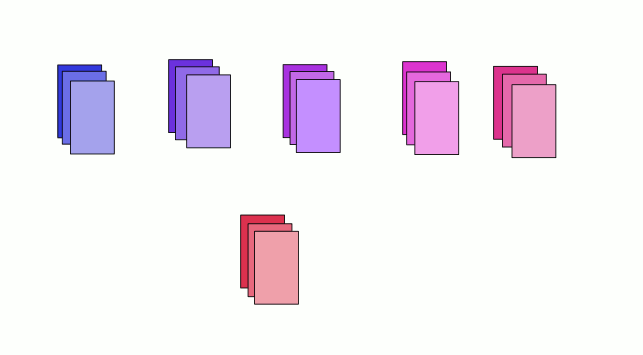Sometimes you need to shuffle up two-hundred, three-hundred card piles, for example when shuffling up a “cube” or “danger room” type game.
Here’s one way.
Cut the cube up in piles of approx 40 cards. Say you’re shuffling up a 240 card pile, that’s six piles.
Grab two of them, and mash them together a few times.
Split it into two halves again, and put one back, and pick up a new pile and do the same thing.

Keep going around and around with every pile. It’s better to keep moving after a few mashes, two or so, since it’s more important to hit many piles.
(Do more mashes per pile if you do have tons of time.)
Repeat this until you’ve hit every pile six times. Six times “around the table”.
If you are two or more people, you can co-operate! Start at opposite sides of the table of piles and then everyone goes around the table; three times each if you are two people, two times each if you are three, four or five, or just one time each if you are six or more people.
You don’t need to read this part unless you wanna peek under the hood of why this works.
The amount of times around the table came via this formula:
X×log(80X) / (X–1)log(4)
Each X for values three through forty-two gives six, if we round up for caution.
In other words, six times around the table is necessary if you have more than 120 cards in three piles, and sufficient for up to 1680 cards in 42 piles. It’s just the perfect number for this.
Thanks to Richard for helping me figure this stuff out.♥︎
A helpful commenter pointed out that there is an additional constraint on the number of circuits around the table; you can have at most twice the number of piles as the number of circuits. So for six trips around the table you can have at most twelve piles.